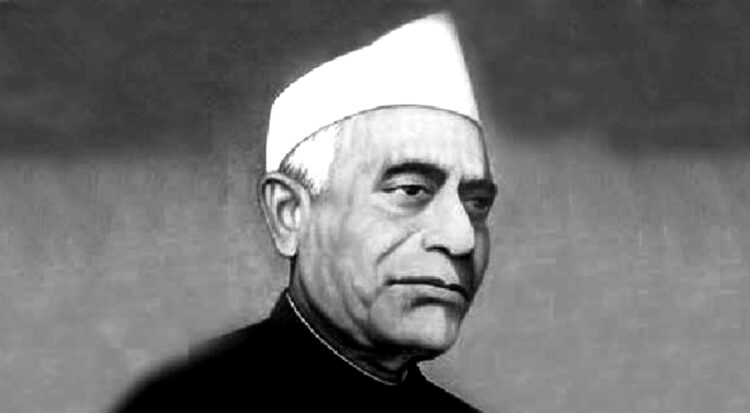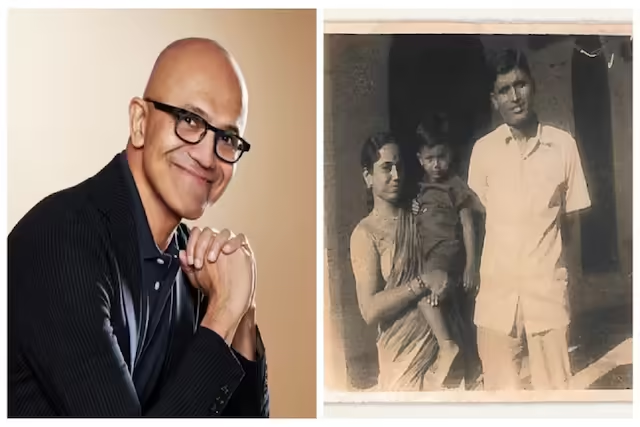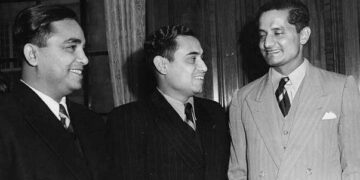Sahitya News Desk!! He was an important poet of the Prakchayavadi era, who also wrote poems of patriotism. Apart from poetry, he also wrote novels, plays, criticism, brief history of Hindi literature and children’s books. His main poetic works are ‘Milan’, ‘Pathik’, ‘Swapn’ and ‘Mansi’. Ramnaresh Tripathi toured the entire country from Kashmir to Kanyakumari and from Saurashtra to Guwahati to select folk songs. He received the Hindustan Academy Award for ‘Swapn’.
life introduction
Mahakavi Pandit Ramnaresh Tripathi was a bright star in the sky of literature by composing inspirational songs like “O Lord! Give us the blissful knowledge”, which became a prayer in the voice of students and teachers in schools. Ramnaresh Tripathi was born in a farmer family on March 4, 1881 in a village named Koiripur in Jaunpur district. His father ‘Pandit Ramdutt Tripathi’ was a Brahmin devoted to supreme religion and morality. Pandit Ramdutt Tripathi had held the post of Subedar in the Indian Army, his blood flowed in the veins of Pandit Ramnaresh Tripathi in the form of religious devotion, devotion to duty and patriotism. He inherited the qualities of fearlessness and self-confidence from his family. Pandit Tripathi’s primary education took place in the primary school of the village. After passing junior class and high school, he went to nearby Jaunpur district to study but he could not complete his high school education. Due to differences with his father, he went to Calcutta at the age of eighteen.
O Lord, the creation of the giver of joy
Pandit Tripathi’s interest in poetry was awakened while receiving primary education. He could not stay in Calcutta for long due to contracting an infectious disease. Following the advice of a person to improve his health, he went to ‘Seth Ramvallabh Nevriya’ in Fatehpur village, Sikar Thikana, Jaipur. It was just a coincidence that when he was on his deathbed, instead of going to his home family, he went to a strange family in a remote unknown place in Rajputana, where he soon got cured of the disease after getting treatment and a healthy climate. Pandit Tripathi efficiently fulfilled the responsibility of education of the sons of Seth Ramvallabh. During this time, his writings were blessed by Mother Saraswati and she said “O Lord! He composed a unique composition like ‘Ananddata..’ which is still sung as a prayer in many schools.[2]
Beginning of literary practice
After Pandit Tripathi’s literary practice started in Fatehpur, in those days he wrote many small and big children’s poetry collections, social novels and Hindi Mahabharata. He deeply studied the entire literature of Hindi and Sanskrit. With the accumulated capital of knowledge and experience, Pandit Tripathi went to Punyatirtha and Gyanatirtha Prayag in the year 1915 and made the same area his place of work. He also started the publishing business with a little capital. Pandit Tripathi composed both in prose and poetry and executed the works keeping in mind the rule of originality. He emerged as a guiding literary figure in the Hindi world and became popular all over the country.
He composed the first and best national Hindi short poem “Pathik” in 21 days in the year 1920. Apart from this, his famous original short poems also include “Milan” and “Swapn”. With great effort he also edited and published seven huge and unique collections of ‘Kavita Kaumudi’. Pandit Tripathi was not only a master of pen but also a hard-working man. On the instructions of Mahatma Gandhi, Tripathi ji went to South India as the ambassador of the Hindi world as the publicity minister of the Hindi Sahitya Sammelan. He was a staunch Gandhian patriot and national servant. He also went to jail after participating in the freedom struggle and farmers’ movements. Pandit Tripathi did not receive any state honor during his lifetime, but even more glorious public honor and everlasting fame was showered upon him.
Romantic poet
Ramnaresh Tripathi has become famous as a poet of liberal sentiments. Before this, Shridhar Pathak had given birth to romanticism in Hindi poetry. Ramnaresh Tripathi developed and perfected the said tradition through his writings. Feelings of patriotism and nationalism have been the main subjects of his works. He became very popular as a singer of national sentiments on the stage of Hindi poetry. He has also achieved amazing success in nature painting.
poetic works
Four of his poetic works are noteworthy-
‘Milan’ (1918 AD) ‘Pathik’ (1921 AD) ‘Mansi’ (1927 AD) ‘Swapn’ (1929 AD). Among these, ‘Mansi’ is a collection of short poems and the remaining three works are love stories.
block poetry
Ramnaresh Tripathi has not taken recourse to any mythological or historical story sources for writing the block poems, but has created original and poignant stories with the power of his imagination. Being created by a poet, the characters of these poems are very attractive and seem to be molded in the mold of life. A common feature of all these three volumes of poetry is that the sentiments of patriotism have been included in them very eloquently. For example, a section of poetry named ‘Swapna’ can be taken.
Its hero, a young man named Vasant, on the one hand, wants to remain absorbed in the intense love of his beloved, longs for the pleasure of her companionship in the heart of the beautiful nature, and on the other hand, he is agitated with the spirit of nationalism to remove the pain and suffering of the society. Remains. This kind of conflict continues in his mind for a long time. Ultimately, inspired by his beloved, he gives priority to patriotism and becomes successful in protecting and saving his homeland from being attacked by enemies. Being filled with such emotions, Ramnaresh Tripathi’s poetry became a favorite among the patriot youth for a long time.
nature illustration
Ramnaresh Tripathi has been a successful painter of nature in his poetic works. He has depicted nature in a comprehensive, vivid and independent manner. At some places, glimpses of shadowism can also be found in his simple and picturesque nature paintings. For example, two lines from ‘Pathik’ are worth seeing –
“Colourful and unique by creating new disguises every moment.
The garland of garlands is dancing in the sky before the sun.
Language
Be it nature pictures or other types of descriptions, Ramnaresh Tripathi has taken great care of the language everywhere. The language of his poems is pure, simple Khari Boli, which appears to be used in this form for the first time in Hindi poetry. There are no errors related to grammar and syntax in these. At some places he has also used popular Urdu words and Urdu verses –
“You stood for me at the door of the suffering people.
I used to wait for you in some chamber.
Become someone else’s tears and shed them for me.
I used to see you in the body of my lover”.
creations
novels and plays
Apart from writing poetry, Ramnaresh Tripathi has written novels and plays, made criticisms and also commentary. His three novels are noteworthy-
‘Veeragana’ (1911 AD),
‘Veerbala’ (1911 AD),
‘Lakshmi’ (1924 AD)
dramatic works
Three notable dramatic works are-
‘Subhadra’ (1924 AD),
‘Jayant’ (1934 AD),
‘Premlok’ (1934 AD)
Other works
As critical works, his two books ‘Tulsidas and his poetry’ and ‘A Brief History of Hindi Literature’ are worth considering. As a commentator, he is remembered for his ‘Commentary on Ramcharitmanas’. ‘Tees Din Malviya Ji Ki Saath’ is an excellent memoir work of Tripathi ji. An important part of his literary work comes under editing works. In 1925 AD, he compiled and edited popular poems of Hindi, Urdu, Sanskrit and Bengali. This work of his has been published in eight parts under the name of ‘Kavita Kaumudi’. One part of this is village songs. His work has been particularly notable in terms of compiling, editing and presenting emotional commentary on village songs. He has been the first person to work in this direction in Hindi and has got considerable success and fame. From 1931 to 1941 AD, he edited and published ‘Vanar’. Children’s literature edited and written in original form by them is also available in large quantities.
fame
Ramnaresh Tripathi’s fame was mainly due to his poetic form. These come as important links of ‘Dwivedi era’ and ‘Chhayavad era’. His name is taken with great respect among the Khari Boli poets of the pre-Chhayavad era. His initial work area was Rajasthan and Allahabad. He spent his last life in Sultanpur.
death
Ramnaresh Tripathi breathed his last on January 16, 1962 at his birthplace Prayag. After the demise of Pandit Tripathi, today only one auditorium is established in his home district Sultanpur which refreshes his memories.






